About IVS
Update:
Of more than 200 preproposals and 15 full proposals, five exciting projects have been accepted for possible funding.
Understanding IVS
Our mission: accelerating scientific breakthroughs.
IVS nurtures exploration of powerful ideas that challenge fundamental claims of how nature works. It seeks breakthroughs, curating new explorations and rigorously validating their potential.
With IVS, proposed paradigms and prevailing paradigms compete on equal footing.
We fund multiple laboratories to pursue the same unconventional idea. Compatible results obtained by a dozen laboratories cannot be ignored. This means that proposed paradigms and prevailing paradigms can compete on equal footing. When competition is made fair in this manner, the scientifically superior paradigm should prevail. This strategy of producing a critical mass of scientific support for promising ideas can open new pathways toward discovery and understanding of the world in which we live.
Major breakthroughs come around far too infrequently.
It’s been over half a century since DNA was discovered and a century since the discovery of sub-atomic particles. IVS is a “black swan” incubator for open discovery of paradigm changing insights. By managing modest investments in open exploration of ideas that possibly have enormous ramifications for humanity, IVS increases the likelihood of major breakthroughs. These breakthroughs can build entirely new industries and transform existing ones; they can lead to medical and technological breakthroughs; and they can help humankind with the challenge of managing the environment.
No time to waste.
With the profound challenges and opportunities facing humanity, never has there been a better time for the IVS. Generations have explored the implications of sub-atomic particles and DNA; yet, there is much left to understand throughout science. With dramatically increasing numbers of people under 30 facing cancer, diabetes, and heart disease, for example, a huge opportunity exists for understanding what makes people thrive. We need this urgently.
Credibility.
The Institute for Venture Science is run and endorsed by world-class leaders, including multiple Nobel laureates, Fortune 500 leadership, and some of our most forward thinkers. The IVS brings a unique eye of discernment to select ideas that bear true potential to change our most fundamental understandings of nature. Its process and oversight create paths of possibility. Many incredible ideas never see the light of day— suppressed for reasons other than their merit and potential for impact. The IVS approach will counter this antithesis of science.
See our endorsers, advisory panel, and leadership.
Background
The challenge of changing the funding bureaucracy turned out to be formidable, Pollack’s first attempts included promoting his ideas to governmental agencies including NIH, and then President Obama. Finally, Pollack came to realize that a more fruitful approach would be to solicit support from private donors, and the current version of the IVS was born. The organization was formalized and a Board with diverse experience was assembled. A 2015 symposium to launch the IVS crystalized the concept into a working organization, and in 2016 the IVS issued its first call for pre-proposals.
After reviewing more than 200 pre-proposals, the Board identified 12 highly promising initiatives that could transform our understanding of nature. Those initiatives range from revealing the profound role of water in biological function, to a promising unconventional cure for cancer. They are now under serious review.
The IVS community represents a combined total of more than 1,000 years of experience in fundamental science ranging across universities, corporations, and governments, in both private and public sectors. It includes some of our brightest minds. This community shares a deep passion for the pursuit of truth.
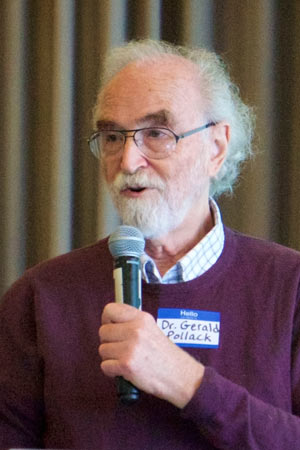
Leadership
Gerald Pollack, PhD
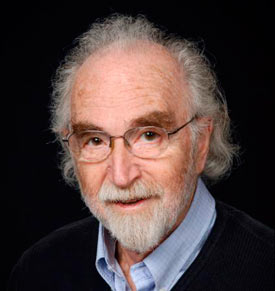
Executive Director
Glenn Estrabillo
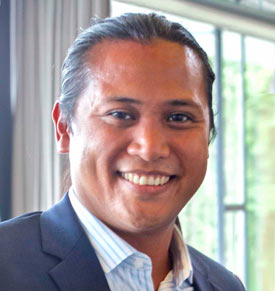
Acting Board Chair
Emeritus
Beverly Rubik, PhD
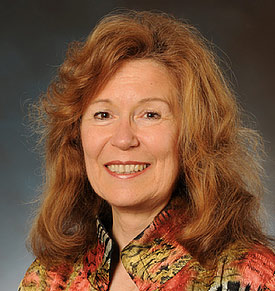
Member of the Board
James Ryder, PhD

Board Chair
Advisory Panel
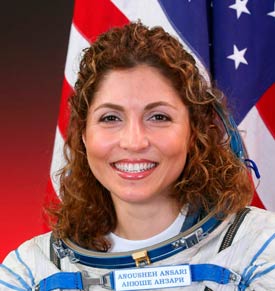
Anousheh Ansari
First female private space explorer. First astronaut of Iranian decent. Entrepreneur. Advisor for X-Prize Foundation. Honorary PhD.
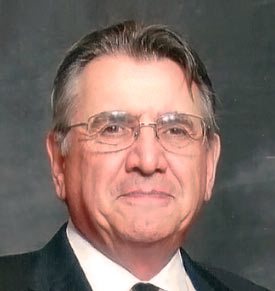
Frank Costanzo
CEO of the International Science Foundation. Businessman, corporate executive, and political consultant.
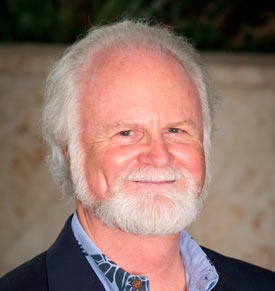
Michael Crosby
President and CEO of Marine Laboratory and Aquarium (MOTE) in Florida. Previously Executive Director of the US National Science Board and Senior Advisor for International Science Policy at NOAA.
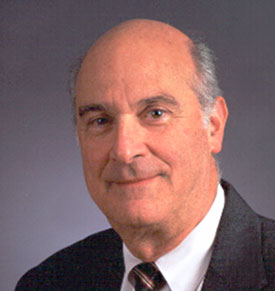
Peter Katona
Professor of Electrical and Computer Engineering at George Mason University. Previously professor and chairman of Department of Biomedical Engineering at Case Western Reserve University and Program Director for Biomedical Engineering and Aiding the Disabled at the National Science Foundation.
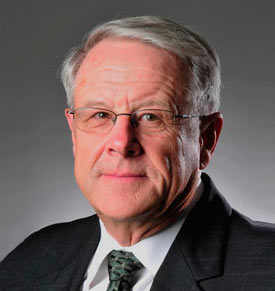
Doug Randall
Professor emeritus of Biochemistry at Missouri. A biochemist with two prior appointments to the National Science Board.
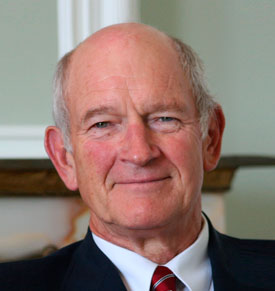
Jon Strauss
President of Manhattanville College. Served as president or vice president of five other universities and colleges including Harvey Mudd College and Worcester Polytechnic Institute.
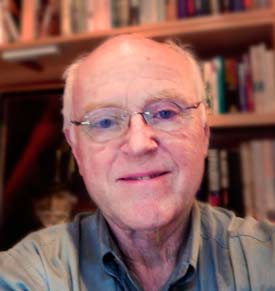
Donald Miller
Degrees in medicine from Harvard Medical School and Northwestern Center Feinberg School of Medicine. Teacher and cardiovascular surgeon at Swedish Medical Center, the Seattle VA Medical Center, and at the University of Washington School of Medicine.
Deceased
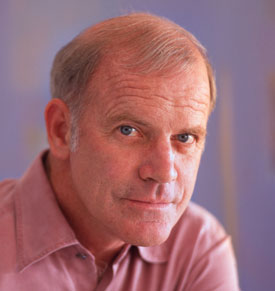
Kary Mullis
Nobel Laureate in Chemistry for optimizing polymerase chain reaction (PCR) technique. Research scientist at the Children’s Hospital Oakland Research Institute.
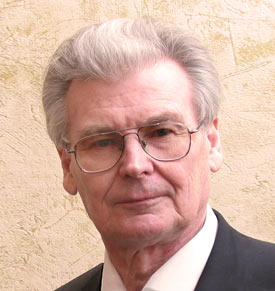
Alexander Konovalov
Rector emeritus, Kazan University. Academician. Former Director, Abruzov Chemical Institute, Russian Academy of Science. Made significant contributions to the fields of thermo-stereo and electrochemical research.
Endorsers
We, the undersigned, concur that the high-risk, high-return investment strategy proposed by the IVS will facilitate long-sought scientific breakthroughs, and we endorse this suggested approach:
G. Graham Allan, PhD, Professor of Chemical Engineering and Forest Resources, University of Washington.
Hakima Amri, PhD, Assistant Professor, Physiology and Biophysics, Georgetown University.
David Anick, MD, PhD, Research Associate, McLean Hospital, Harvard Medical School.
Gustavo V. Barbosa-Canovas, PhD, Director, Center for Nonthermal Processing of Food, Washington State University.
Henry Bauer, PhD, Dean Emeritus of Arts & Sciences, Professor Emeritus of Chemistry & Science Studies, Virginia Polytechnic Institute & State University.
Robert Root-Bernstein, PhD, Professor of Physiology, Michigan State University; MacArthur Fellow.
Thomas Bonnicksen, PhD, Professor & Chair Emeritus, Forest Science, Texas A&M University; VisitingScholar, Forest Foundation.
Dorothy Bowers, BA, BS, former Chair, National Advisory Council for Environmental Science and Technology; former Vice President, Environmental Policy, Merck & Co.
Guozhong Cao, PhD, Professor of Materials Science, University of Washington.
Robert L. Carneiro, PhD, Curator of Anthropology, American Museum of Natural History; Adjunct Professor, Columbia University. Member, National Academy of Sciences.
Wei-Chun Chin, PhD, Associate Professor, School of Engineering, University of California, Merced.
James Clegg, PhD, Professor of Molecular and Cellular Biology, former Director, Bodega Bay Laboratory, University of California, Davis.
L. Eric Cross, PhD, Evan Hugh Professor of Electrical Engineering Emeritus, Penn State University.
Diana Darnell, PhD, Research Assistant Professor, Cell Biology and Anatomy, University of Arizona School of Medicine, Tucson.
William Denevan, PhD, Carl O. Sauer Professor Emeritus, Dept of Geography, Univ. of Wisconsin.
Allan Dobbins, PhD, Associate Professor, Vision Science Center, University of Alabama.
Michael E. Dubrasich, PhD, Executive Director, Western Institute for Study of the Environment.
Pat Frank, PhD, Staff Scientist, SLAC, Stanford University.
Jeff Fredberg, PhD, Professor of Bioengineering and Physiology, Harvard University.
Laurence Fredrick, PhD, Research Professor, Dept of Astronomy, University of Virginia.
Chaim Frenkel, PhD, Professor of Plant Physiology and Pathology, Rutgers University.
Csaba Galambos, MD, PhD, Assistant Professor of Pathology, University of Pittsburgh.
William Gardner, PhD, Professor Emeritus, Department of Electrical and Computer Engineering, University of California; and founder, chief scientist and president of Statistical Signal Processing, Inc.
Warren Guntheroth, MD, Professor of Pediatrics, University of Washington.
Boyd Haley, PhD, Professor and Chair Emeritus, Department of Chemistry, University of Kentucky.
Arie Horowitz, ScD, Assistant Professor, Molecular Cardiology, Case Western Reserve University.
Eileen Jaffe, PhD, Senior Member, Fox Chase Cancer Center.
Tomas Jilling, MD, Research Associate Professor, Northwestern University School of Medicine.
Carl Johannessen, PhD, Professor Emeritus of Geography, University of Oregon.
Pete Jumars, PhD, Director, School of Marine Sciences, University of Maine.
Charles Kay, PhD, Professor of Wildlife Ecology, Utah State University.
Vinod Khosla, MS, MBA, Founding CEO, Sun Microsystems; co-founder, Daisy Systems; Founder, Khosla.
A. Denny Kirwan, PhD, Mary A. S. Lighthipe Chair of Marine Studies, University of Delaware.
T. Fettah Kosar, PhD, Principal Scientist and Nanotech Facility Manager, Harvard University.
Robert Lee, PhD, Professor Emeritus, College of Forest Resources, University of Washington.
Michael Levin, PhD, Director, Forsyth Institute, Harvard University.
Subhash Mahajan, PhD. Director, School of Materials, Arizona State University.
Donald Miller, MD, Professor of Surgery, Former Chief, Division of Cardiothoracic Surgery, University of Washington.
Garret Moddel, PhD, Professor of Electrical & Computer Engineering, University of Colorado.
Howard Moskowitz, PhD, President and CEO, Moskowitz Jacobs Inc.
Michael Mross, PhD, President, Vermont Photonics Technologies Corp.
Amar Neogi, PhD, Director, Renewal Research, Weyerhauser Co.
Michael Newton, PhD, Professor Emeritus, Department of Forest Engineering, Resources and Management, Oregon State University.
Wm. Ogle, PhD, Assistant Professor of Biomedical Engineering, University of Florida.
Charles Ordahl, PhD, Professor of Anatomy, University of California, San Francisco.
Mόnica V. Orellana, Ph.D, Senior Research Scientist, Institute for Systems Biology.
Eric Posmentier, PhD, Professor Emeritus, Department of Physics and Department of Mathematics, Long Island University; Visiting Professor, Earth Sciences, Dartmouth College.
William Reif, President, Wausau Coated Products.
R. Michael Roberts, PhD, Professor and Chair, Department of Oral Biology, University of Missouri. Member, National Academy of Science.
Catherine M. Roberts, Co-Founder, Rutherford B.H. Yates Museum Inc.
Scott Roberts, PhD, former Vice President, Shell Oil Co.
David Rosen, PhD, Vice President, Applied Optics, Physical Sciences, Inc.
Rustum Roy, PhD, Evan Pugh Professor of the Solid State Emeritus, Professor of Geochemistry Emeritus, Professor of Science, Technology, and Society Emeritus, Pennsylvania State University; Visiting Distinguished Professor of Materials, Arizona State University.
Morton Satin, PhD, Founder and President, FoodAdviz LLC.
George Seidel, PhD, University Distinguished Professor, Department of Biomedical Sciences, Colorado State University. Member, National Academy of Science.
Norman Singer, PhD, former Director of R&D, NutraSweet.
Lee Smolin, PhD, Faculty, Perimeter Institute, and Author “The Trouble with Physics.”
Peter Stark, MS, Research Associate, Biological Chemistry and Molecular Pharmacology, Harvard Medical School.
Brent Stewart, PhD, Professor of Radiology, University of Washington.
Ernest Stokely, PhD, Emeritus Professor of Biomedical Engineering, Emeritus Associate Dean of Engineering, University of Alabama.
George Sugihara, PhD, McQuown Chair of Natural Science Scripps Institution of Oceanography, University of California San Diego.
Yolene Thomas, PhD, former Assistant Professor of Medicine and Microbiology, Columbia University (now: Research Director, CNRS, Univ. Paris).
James Tucker, MD, Department of Psychiatry and Neurobehavioral Sciences, University of Virginia Health.
Donald Twieg, PhD, Professor of Biomedical Engineering, University of Alabama.
D. Eric Walters, PhD, Professor of Biochemistry & Molecular Biology, Rosalind Franklin, University of Medicine and Science.
William Woods, PhD, Professor of Geography, Courtesy Professor, Department of Anthropology, University of Kansas.
Garret L. Yount, PhD, Scientist, California Pacific Medical Center Research Institute.
Robert Zyback, PhD, Program Manager, Oregon Websites and Watershed Project.
Break Through
Break Through
QUICK LINKS